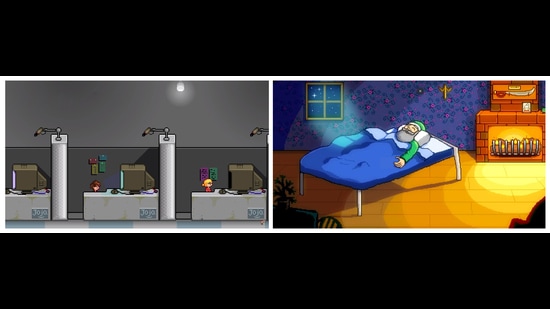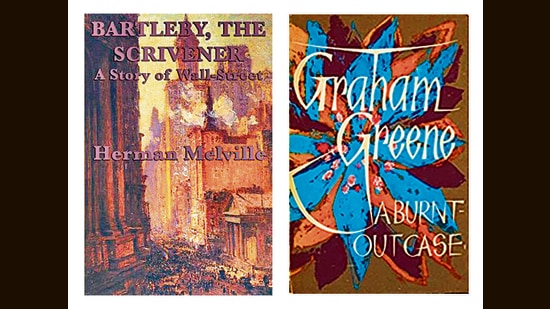In 1994, Green Day released a song titled Burnout, on the album Dookie. Part of it goes: “Apathy has rained on me / Now I’m feeling like a soggy dream.” There’s anger at having to grow up, but also a sense of foreboding amid industrial-age imagery of shuffling lines of workers. The song calls them “walking dead”. That’s one way to describe burnout. Here are a few other samples from stage and screen.
Level unlocked
Stardew Valley (2016), a simulation role-playing game developed by ConcernedApe, is centered on farm life. But it is also decidedly about work, specifically, how to break free of the rut.
In the first scene the protagonist is in a room with his grandfather, who appears to be on his deathbed. The old man hands him an envelope, which he instructs his grandson not to open. “There will come a day when you feel crushed by the burden of modern life and your bright spirit will fade before a growing emptiness,” the grandfather says. “When that day arrives, you are to open the envelope.”

The grandfather dies. The scene shifts to a few years later, in a dull office of cubicles and people tapping away at computers. The protagonist reaches for the letter, in which he learns of his grandfather’s old farm. The first sentence reads: “If you’re reading this, you’re in desperate need of change. The same thing happened to me a long time ago; I’d lost sight of what was most important in life.”
The young man quits his job and moves to his grandfather’s farm in Stardew Valley. He learns to live off the land, finds friends in the local community, explores caves in his free time. He has every appearance of being happy.
‘I would prefer not to’
Bartleby, the Scrivener (1853), a short story by Herman Melville (of Moby Dick), is about a law clerk named Bartleby who works for a Wall Street lawyer. He works extremely hard; is an overachiever. Then, all of a sudden, Bartleby stops working. He won’t even copy a document.
It all begins when the narrator, Bartleby’s boss, calls on Bartleby to examine some of his work. “I would prefer not to,” the clerk responds, much to the other’s surprise. Through the story, Bartleby productivity declines. He won’t do what he used to, won’t even do what he can. “I’d rather not”, come to think of it, is a good slogan for the burning-out overachiever; a reminder that sometimes success can be achieved with less.

Dead ends
More than a decade before the earliest studies of the condition, Graham Greene’s novel A Burnt-Out Case (1960) used the term to describe a similar kind of malaise.
In the real world, an American psychoanalyst named Herbert Freudenberger brought the term “burnout” into academic usage with a study that showed that overworked doctors in New York City developed symptoms (fatigue, headaches, anger, tears) quite similar to those of the addicts they were caring for.
In Greene’s tale, an architect dissatisfied with his life travels to central Africa and starts working at a facility that cares for people with leprosy. A doctor there points out that he has symptoms strikingly similar to those of a person with leprosy. These include nerve endings that burn intensely before suddenly going silent, and a loss of feeling and emotion. The doctor identifies the source of this condition in the protagonist: his career was successful in the eyes of the world, but it left him with a deep emptiness within.
Enjoy unlimited digital access with HT Premium
Subscribe Now to continue reading

Stay connected with us on social media platform for instant update click here to join our Twitter, & Facebook
We are now on Telegram. Click here to join our channel (@TechiUpdate) and stay updated with the latest Technology headlines.
For all the latest Art-Culture News Click Here
